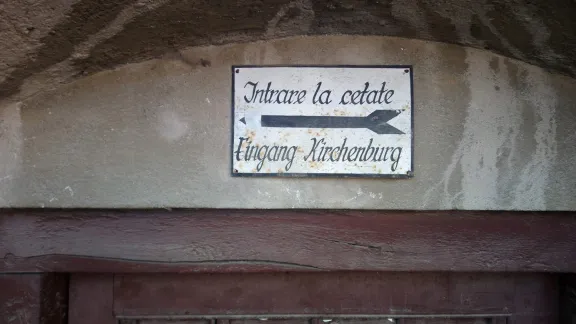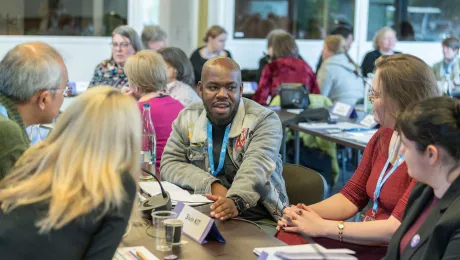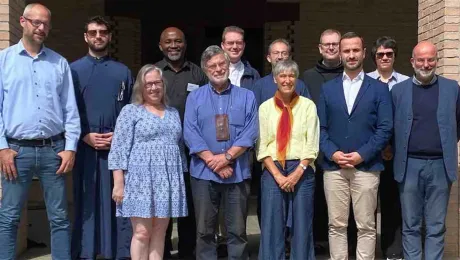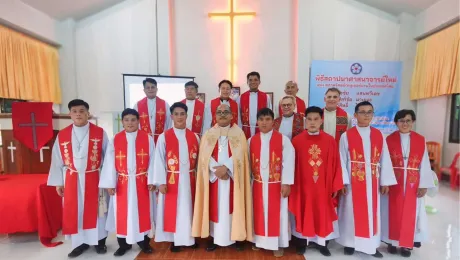
December 2018, Sibiu, Romania.
European diaconal actors assess church response to diversity
(LWI) – A three-year cycle of workshops coordinated by a group of Lutheran diaconal actors from the three European regions of the Lutheran World Federation (LWF), concluded with plans for training materials for the broader communion of churches on the characteristics of "a convivial church.”
During the final workshop on 20 October, “People on the Move: Creating Convivial Theology” the group discussed four booklets developed by the network containing examples of conviviality in the church.
The current phase is part of the LWF European Diaconal Process organized in cooperation with the International Academy for Diaconia and Social Action - Central and Eastern Europe (interdiac) and is an initiative of the Lutheran World Federation.
The workshops set out to explore and demonstrate churches’ diaconal response to growing diversity in Europe. The LWF Communion Office and LWF member churches in Europe are actively involved with interdiac in developing the concept of the “convivial church.”
The diaconal actors became increasingly aware of the diversity in Europe and how this diversity is being expressed through divisions and polarization, at times.
“The role of the churches in such a context is to look for practical ways in which we can live together peacefully. Not as separated from each other, but as those who, despite many differences, in a creative and respectful way, co-create reality,” said Rev. Dr Ireneusz Lukas LWF Regional Secretary for Europe and coordinator of the European Diaconal Process since 2016.
Defining Conviviality
The diaconal group defines conviviality as “the art and practice of living together.” This definition led to the question, “How is it possible to live together in a Europe of increasing diversity and growing inequality?”
Throughout the three years, the diaconal actors asked, “What are the marks by which we would identify the convivial church?” Sixteen missional stories of existing church programs presented in the four booklets served as a study tool to extract a framework for a diaconal church seeking conviviality, and the art and practice of living together which will later be compiled into a fifth booklet.
“All stories come from the personal, day-to-day work of members of the LWF European churches. The stories were shared as a part of the common learning and as a starting point for reflection,” said Rev. Tony Addy, head of education at the Czech-based interdiac.
The group intends for readers to reflect on the stories and use them as “a mirror in which to view their own context.”
“I trust that the art of convivial life developed and practiced by the LWF member churches in Europe will continue to grow and inspire many people,” Lukas imagined. “Common life is not only based on observing rigidly defined rules, but it becomes art, that is, something beautiful, joyous and requiring constant creativity,” Lukas added.
During a feedback session of the workshop, the diaconal actors agreed that the convivial church should be “mutual, safe spaces where people can come learn from each other” and experience radical conviviality that is spiritually led.
Diaconia is not just a branch of the church but is a characteristic of the church.
“Diakonia is not just a branch of the church but it is a characteristic of the church, meaning every group and activity done in the congregation can be done from a diaconal approach,” Rev. Martin Urdze of the Latvian Evangelical Lutheran Church Abroad said.


